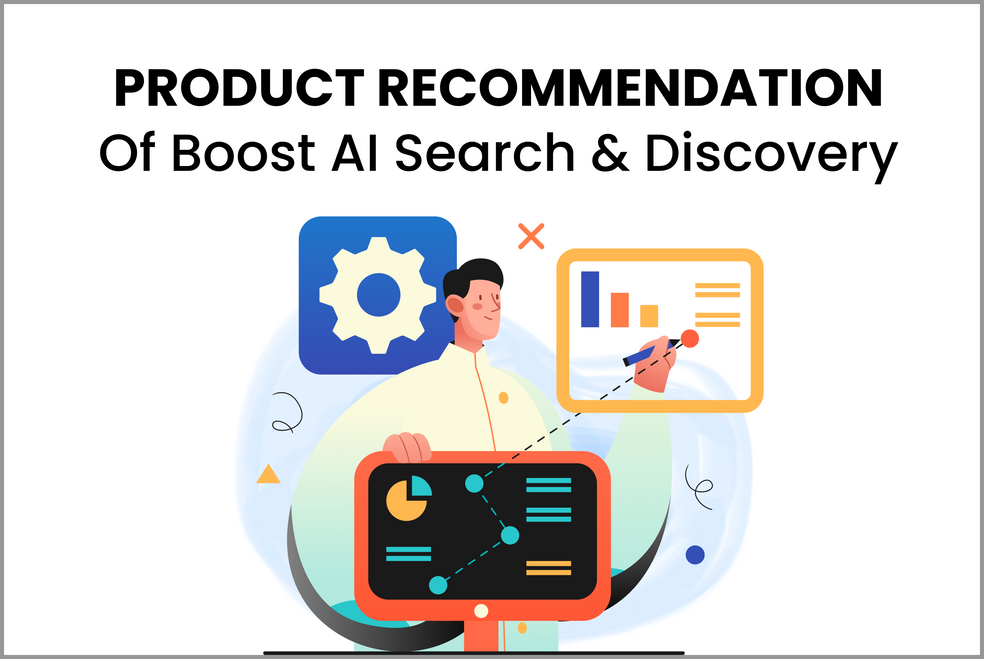A
A/B testing site search tests different variables to determine what search practices work best to improve the shopping experience on an eCommerce website.
Artificial intelligence personalization (AI personalization) is a technology that uses machine learning algorithms to adapt or tailor information or experience specifically to suit an individual’s needs, preferences, and characteristics.
AI Synonyms or AI Synonym Suggestions are ways that eCommerce sites use artificial intelligence (AI) tools to make search results more accurate and relevant.
AI-powered search in eCommerce site search refers to using artificial intelligence and machine learning algorithms to improve the accuracy and relevance of search results.
Average Order Value (AOV) is the average revenue generated by a customer during each of its visits to an online retailer.
ARPU is a metric that defines the average revenue per user. It is calculated by dividing the total revenue by the number of users in a given period.
Augmented site search enables users to search and get instant results with high accuracy via AI power and natural language processing (NLP).
Autocomplete search is a search feature in which a user enters one or more words and the search engine displays a list of predicted searches accordingly.
Amazon Web Services (AWS) is a pay-as-you-go type of cloud computing service offered by Amazon.
B
Buyer intent, or purchase intent, is the willingness of a customer to purchase a product, service, or idea.
C
Click depth is defined as the number of clicks taken by the user before the desired action is completed.
Clicks Over Time or click-through rate is a metric that measures how often users click on an advertisement.
Cognitive search is a powerful artificial intelligence technology that enables users to quickly and accurately search for the products they need.
eCommerce cross-selling is the marketing technique of selling more than one complementary product or service to one customer.
A custom range slider is a set of fixed values (in numbers, mostly) that shop owners can personalize based on the specifications of their products.
Customer journey is the totality of experiences a customer has with an organization. It encompasses all customer interactions across all channels, devices and touch points.
Customer Retention is a business tactic used to boost re-purchases and reduce defections. Customer retention strategies aim to maximize lifetime value.
D
Discovery design for search in Shopify enables buyers to locate which items are available and promoted in an online store.
Dynamic filtering is a tool for customers to look for products based on multiple criteria.
E
Enterprise search is the process of using a search engine or tool to find and organize information that resides within an organization’s networks.
An exact search (exact match) is a type of site search where the results returned are exactly what the user searched for.
F
Faceted search is a search engine optimization technique that allows site visitors to find the item they are interested in.
Fallback search is an alternative term for the process of executing a search in case an input is not recognized by a search engine or algorithm.
In Shopify, using tags to group relevant information pieces in search and collection pages is a process known as filter design.
Filter layouts are the visual look of your filter options and filter trees. They are how conveniently you display filter options for visitors.
Filter options are filter tree values that define the item attributes displayed in the list view. Most filter options are available as a dropdown option.
Filter trees are a graphical interface with a set of filter nodes. Each filter node has a drop-down menu containing all the options for that filter node.
Filter UX is crucial to the customer experience and can enhance conversions for retailers.
Frequently Bought Together helps shoppers discover associated items that are typically used or purchased together with the item that is already in their cart.
Frictionless checkout is the checkout procedures where the obstacles to purchasing have been reduced to a minimum.
Full-text search is a method of searching within large amounts of digital content, usually textual, by using computer programs.
Fuzzy Search, also known as approximate search, is a technical term that refers to the process of finding strings.
G
Geo Search, also known as local search or location-based search, is commonly used to receive results that are tailored to their location.
Geo-based merchandising is a marketing strategy that involves tailoring your sales outlets’ offerings locally based on the location and catchment region of the site
H
Headless commerce is an eCommerce architecture that separates the combination of front-end and back-end development responsibilities into two different teams.
Hyper-personalization uses AI and real-time data to tailor web content towards individual consumers to improve their shopping experiences.
I
Instant search is Shopify’s term for site-wide searching which auto-suggests product names, attributes, and values as the user types.
K
Keyword matching is the accuracy of a search result or search suggestion that is used to match a user’s search query.
Keyword research is the process of identifying potential search terms, in order to determine the best keywords to use on a website and generate quality content that would help people find your website.
M
M-commerce refers to mobile commerce, a subset of e-commerce, specifically transactions over mobile devices.
The manner in which products are arranged and displayed in an online store is known as eCommerce merchandising.
N
A natural language search is one that is conducted using plain and commonly spoken language, like a customer’s everyday language.
Navigational search is a search for a site or webpage that is intended to only take or redirect the user to a specific website or page.
No results found is a standard message you may see when an online search doesn’t provide any results.
No Results Suggestions refer to the product recommendations on the No Results page on your Shopify store.
O
Overlay filters help users choose multiple filter tree values and have all matching results displayed
P
A partial search is a search query involving fragments of a term rather than the whole term.
Personalized search is a way to filter products from the Shopify platform to find specific products that are relevant to your customer’s needs or wants.
Predictive search, or auto-complete, is an innovative technology used by search engines and other web-based applications.
A product data management (PDM) system is basically a platform that collects all data related to a business on a single, consolidated platform.
Product Filters are Shopify filters that enable more efficient and streamlined sorting, grouping, and filtering of products for specific categories.
Product intelligence is the process of acquiring, analyzing, and acting on data about how customers use your products.
Product marketing refers to the process of influencing consumers’ purchase decisions through advertising and other promotional efforts.
Product Ranking is a process used by eCommerce websites to choose which products will appear in search results when customers conduct in-store searches.
Product recommendation is product suggestions and services your customer might be interested in, based on the contents of their browsing history, purchase history and other data.
Product Search is the process that customers discover and find certain products via an on-site search that satisfies their needs.
Q
The Query Relaxation algorithm relaxes the query matching criteria from “match on all terms” to “match on one term”.
Query understanding is the process of dissecting search queries to create an improved query that can return more relevant search results.
R
Recall is the ability of a search engine to find all relevant results for a certain query, regardless of where they show in the search results. In simple words, recall is a measure of how many relevant objects in the database were found in response to a certain search query.
A related product is a product that is related to the product from which it is being sold. These could be another type of the same product, or they can be sold as an accessory.
S
Search analytics tool within Shopify helps merchants understand how customers find and interact with their stores.
Search redirects move people from one URL to another when they search.
Search relevance measures how accurately and quickly a search engine can find and present the most relevant information in response to a user’s search query.
Searchandising describes the practice of optimizing an online store’s search engine rankings and categories for maximum visibility and profitability.
Shopify collection page is groupings of products allowing you to organize your products into groups by category.
Metafields (or custom fields) allow you to add extra information to your store that isn’t already present in the default configuration of Shopify.
Smart search uses an intelligent algorithm to enhance the user experience by recognizing and returning results on relevant topics, finding synonyms, and determining phonetic similarities.
A suggestion dictionary refers to the list of keywords and phrases displayed to users when they type in their queries.
No Results Found















